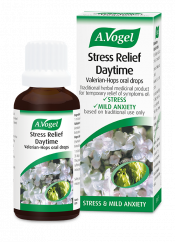An introduction to panic attacks
Panic attacks arise because of an exaggerated response to the body’s normal reaction to stress or danger. This response has been described by scientists as the ‘fight or flight’ reaction and is one of our ‘primitive reflexes’.
In our caveman days, we had to be very alert to the dangers surrounding us. When meeting a wild beast, we had two choices - to ‘fight it’ as it may be food for you, or to ‘run away’ from it as you might become food. In these life-threatening circumstances, a number of chemicals are released into our bloodstream to help our bodies work more efficiently.
These include adrenaline, noradrenaline and cortisol and they make our heart beat faster, increase our blood pressure and make us sweat - symptoms we associate with anxiety.
What happens during a panic attack?
During a panic attack, very large quantities of stress chemicals are released into the blood giving rise to more pronounced symptoms of stress. So paradoxically, the very mechanism that makes us better at fighting mammoths, if overdone, can make us freeze and function poorly.
Most people experience changes to their breathing pattern during a panic attack. Breathing becomes shallow and very rapid. This alters the balance of carbon dioxide and oxygen in the body, causing a range of other symptoms such as muscle spasms, tingling in our hands, feet and around our mouths. These often subside once your breathing is back under control.
Why do we experience panic attacks?
People experiencing panic attacks find that episodes occur during periods of their life when they are under more stress or when they are worried or anxious. Some may feel a bit low in mood or even describe themselves as being slightly depressed. However, we face stress all the time, so why doesn’t everyone get them all the time?
What seems to happen is that our mind and body can cope with stress up to a certain level and then we relax and ‘let off steam’. We release the stresses accumulated during the day by winding down at night.
This is sometimes described as a leaky bucket being filled with water. The amount of water (stress) added depends on the situation you are in – more stress means the bucket fills faster. If you are not able to release this stress fast enough, the bucket starts filling up.
As the bucket fills, you become progressively more anxious. There will come a point where the bucket starts to overflow – this is the point where you experience a panic attack.








